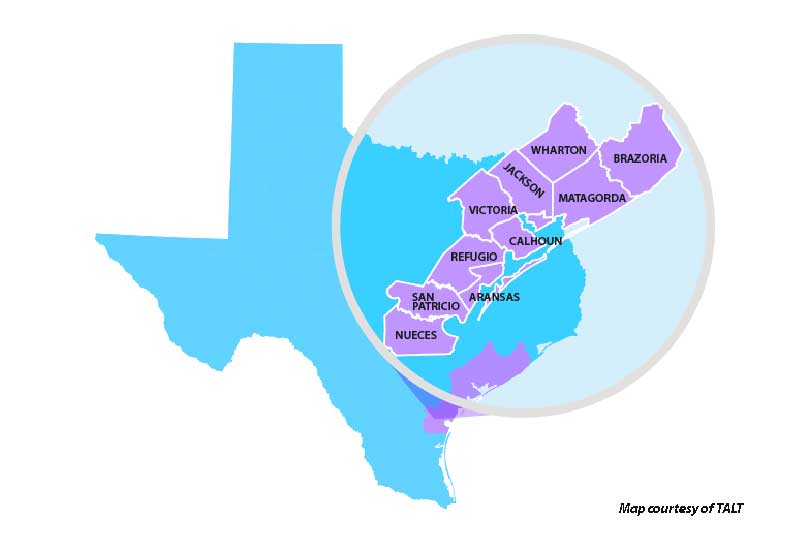The Texas Agricultural Land Trust (TALT) is helping to advance the conservation of privately owned lands in the Gulf Coast region of Texas through its new Coastal Land Legacy Initiative.
The initiative, funded by a grant from the National Fish and Wildlife Foundation, will:
- Help private landowners conserve their working lands with an agricultural conservation easement.
- Provide information on the benefits of donated and purchased conservation easements and the available resources for each.
- Promote the need to conserve working lands and how doing so provides critical public benefits, like clean water, abundant food and fiber, clean air, wildlife habitat and the wide open spaces that all Texans enjoy.
“We’re hoping to get the word out about conservation easements being a good tool to help against the loss of good farm and ranch lands in that part of the world,” said Ken Cearley, TALT stewardship director, in an interview with the Texas Farm Bureau Radio Network. “Of course, it’s a statewide problem. In Texas, we’re losing working lands faster than any other state.”
This initiative is focused on the area south of Houston to Corpus Christi. Counties include Brazoria, Wharton, Matagorda, Victoria, Jackson, Calhoun, Aransas, Refugio, San Patricio and Nueces.
“The Gulf Coast region is home to some of the state’s most valuable working lands. Yet, this area is experiencing rapid land loss,” Cearley said.
He noted conservation easements serve as a tool that TALT can offer to help landowners pass down their land to future generations, strengthen the viability of farming and ranching, conserve vital natural resources, enhance wildlife habitat and create economic value for all Texans.
TALT partners with landowners to negotiate conservation easements. This is a voluntary legal agreement that binds a landowner’s good intentions to the land forever. Conservation easements can be purchased or donated, depending on the landowner’s goals. Landowners get estate tax benefits with purchased and donated conservation easements.
For more information, visit www.txaglandtrust.org.

